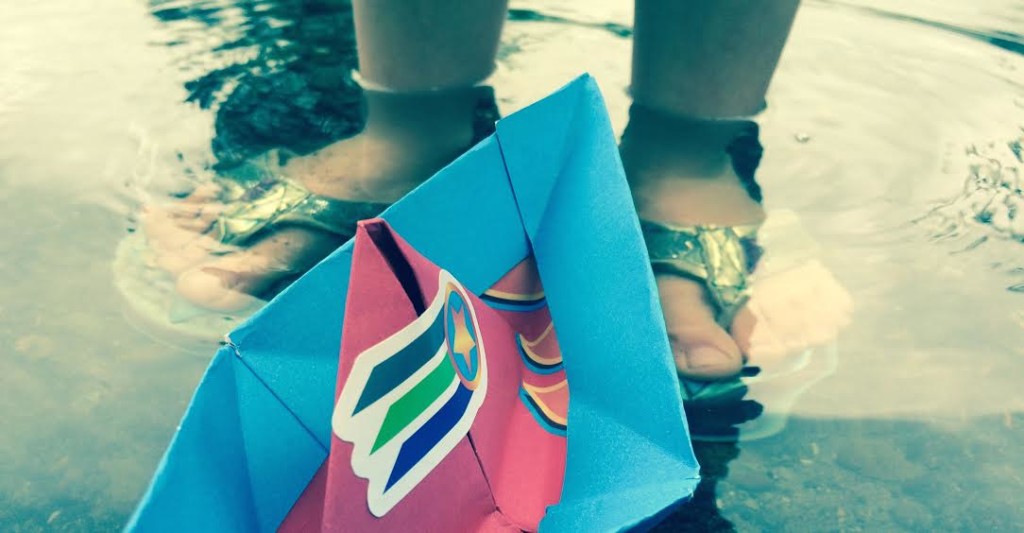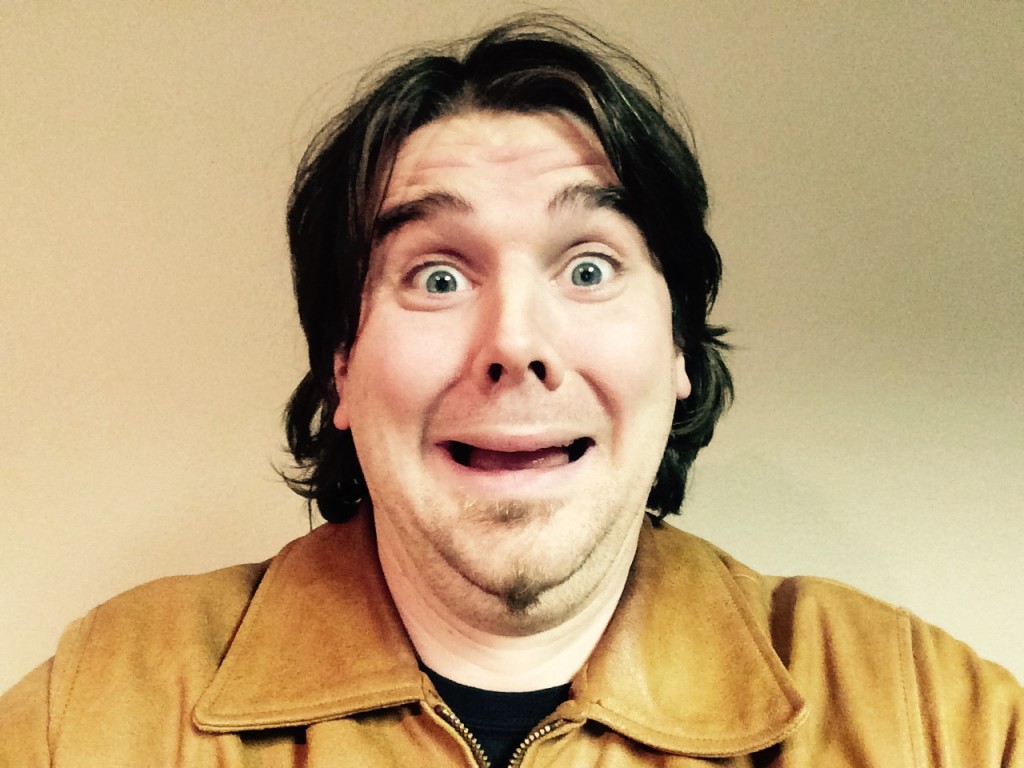My five-year-old and I went down to the creek with some paper to make paper boats. In my mind I could just picture how awesome it would be to let those things go sailing down the creek. So we get down there and I fold the first one and I let it go down the creek. Kaelen was thrilled. But his excitement quickly faded into distress as the boat moved away. He waded after the boat and grabbed it.
“Kaelen, you have to let it go down the creek.” I said.
“No, I want it,” he said.
“Trust me, Kaelen. Let’s just see what happens.”
Frustrated, he slowly let it go. It went about 20 feet and got caught on a log. I waded over to it and Kaelen asked me for it. But I said, “No, dude, you have to let it go.” And I let it go and it sailed down the creek. By this point Kaelen is almost in tears and says, “But Daddy, I really want to keep the boats.”
I head back up the creek to where the stack of paper is sitting, frustrated because my beautiful plan of sailing boats down the creek with my son is not playing out the way I intended it to. But I suddenly think to myself, “Why am I so bothered by this? Who really cares if the boats go all the way down the creek or not? Isn’t the point of being here to have some quality time with my son? Instead I am driving him to tears.” Here I am, focused so hard on the end result of the boats, that I’ve forgotten that the goal of this outing was to have a date with my son. So I told Kaelen, “Okay buddy, I’m sorry. You can keep the boats.” The rest of the afternoon, I would make a boat and he would let it go ten feet or so, pick it up, and add it to his collection on the beach. (With the exception of a couple he let me send down the creek for my own enjoyment. 🙂 ) We came home with an armful of soggy paper boats, and my son was never more thrilled.
As I think about that day, I understand my mistake. I was focusing on what I viewed to be the end result: floating boats. I forgot about the process. I got focused on the “doing” and lost track of the “being,” the “doing” of sailing boats instead of the “being” of being a father to my son. This way of thinking is visible throughout my life and is something I fight daily. In another blog post I wrote about how God’s purposes are wrapped up inside the process of life. We tend to view things as “the end justifies the means” and focus on doing whatever we have to in order to accomplish a specific project. But from God’s perspective, I think that often the means ARE the end.
Romans 8:28 says, “And we know that God causes everything to work together for the good of those who love God and are called according to his purpose for them.” Sometimes we hear this verse and we think, “See, God is going to make everything I do prosper.” But that is not what this verse says, nor is it what the surrounding verses are trying to communicate. God is about His purposes. Not ours. In verse 35 Paul asks the question, “Does it mean He no longer loves us if we have trouble or calamity, or are persecuted, or hungry, or destitute, or in danger, or threatened with death?” This question implies that we will face these things. We may face trouble. We may face hunger or destitution. We may face persecution. How is that things working together for good? Well, according to my purposes, it isn’t. But it is good because all those bad things work together to accomplish the good thing: His purpose.
God is at work in us, with purposes all throughout the process of life, with the ultimate destination being greater than our immediate happiness, but more so, our holiness. Our job is not focus on the fact that we haven’t arrived at this destination but to be with him in the process, and trust him with it, knowing that we are deeply loved and leave the results up to Him.
Views – 139

 Follow
Follow

